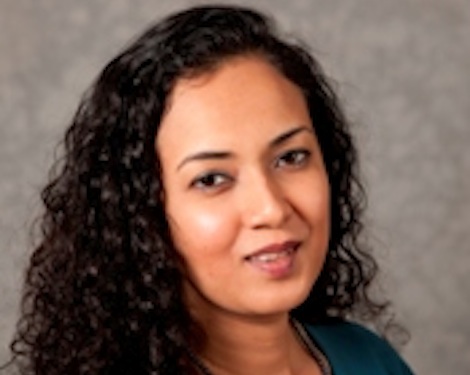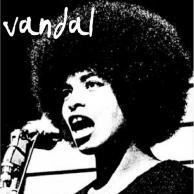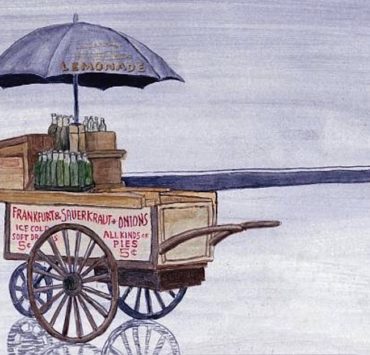
Read Oindrila Mukherjee’s “My First Byline”
What about your work (creative, activist, etc) excites you the most?
Trying to write about an India that has changed and is changing very fast, and to tell our stories, the stories of people who inhabit a post-globalization space that defies the old stereotypes.
Do you have any special rituals, or is writing something you just have to hunker down and do?
Special ritual: Turn the Internet off, TV off, radio off, cell phone off. I try to write at least 2 or 3 times a week even when I’m teaching, and I don’t stop these days until I have a thousand words. It’s hardest before you start but gets easier as you see the word count going up at the bottom
Who were and are some of the writers important to you?
I love magical realists, even though my writing is nothing like theirs. But maybe it’s because most of them deal with national, post-colonial narratives, through non-linear, non-traditional, non-Western structures. Or maybe because I love folk and fairy tales and the surreal elements. Marquez, Alejo Carpentier, Ben Okri, Isabel Allende, Rushdie. Jamaica Kincaid’s voice had a huge impact on me when I first wanted to be a writer. I like dark, irreverent voices like Lorrie Moore or Junot Diaz, and lyrical writers like Maxine Swann. But I think the biggest influences on me have been classic British novelists I grew up reading, like D.H. Lawrence, E.M. Forster, and Thomas Hardy.
Do you want to share anything else about the work featured in Vandal: For example, what inspired it? A context? What next?
The central incident in this story is based on a real life experience I had when working as a newspaper reporter in Calcutta, before I moved to the U.S. The incident happened, I was one of the first reporters to cover it, and it got some mileage. Then, everyone forgot about it. Several months later, I went back to her village to do the follow up. As a reporter, I found myself writing about people who belonged to a very different social milieu from myself. The primary way in which these stories impacted me as a reporter was through bylines. Writing this story, a few years later, was a way of processing my own feelings of guilt and helplessness, and also of exploring the divide – and attempts to connect –between characters from very different backgrounds.
What are you working on right now? Why now?
I’m working on a novel set mostly in India, as well a collection of short stories set in the U.S. I was in India all summer to research the novel, it’s very contemporary, but I can’t say much more about it at this stage.
The short stories deal with Indians who come here now, as opposed to a generation ago. The world is a different place since the growth of social media and online dating sites and so on. India is a completely different place from even 10 years ago when I left. It’s more Americanized than before. The people who come here now are different, they are coming from a different place, and both our expectations and our experiences are different. I really think the narrative about Indian immigrants needs to be updated.
At what point do you feel comfortable giving drafts to other people to read? When do you know something is finished?
I tend to give people drafts way too early. I think something’s finished, then, while walking around on campus or something, I’ll suddenly think of something new that the story was missing. Note to Self: Don’t rush. Hibernate. In other words, take the advice you always give your students. Patience, I’ve learned, is a real virtue in writing.
Any hot button issues that you feel Vandal should address in the future? Or any silences in public discussions or even private spheres that should come out in the open?
I would love more conversations about international culture and its place in America today, and about representations of other nations. While there are attempts to talk about the challenges of being a woman writer or being a writer of color, there is very little about being a foreign writer. This dimension has played into my creative writing workshops as a grad student, into my communication with agents and editors, my cover letters, and my tenure track job. It is a unique space to inhabit.








